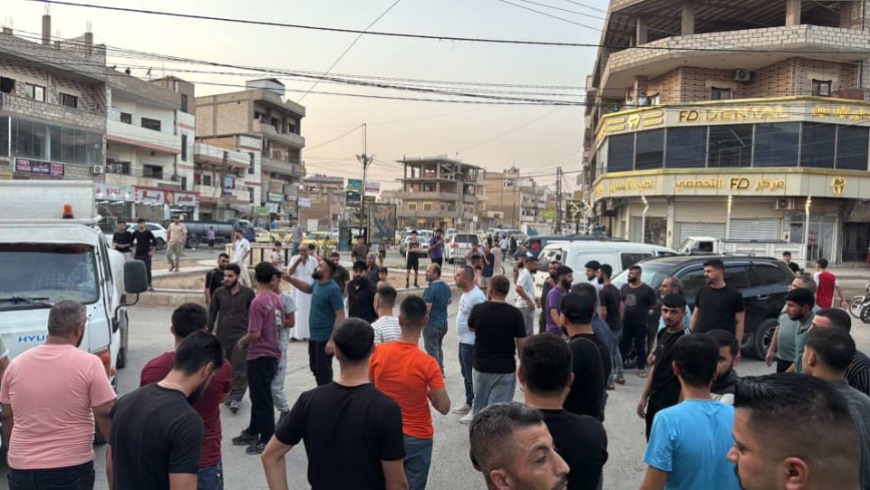Protests in Hasakah against the increase in electricity prices.. Accusations against "QSD" of burdening citizens with additional costs

The city of Hasakah witnessed wide protests on Thursday evening, including the closure of dozens of commercial shops and blocking main roads, in rejection of the decision by "QSD" to raise the price of the electric amp from $7 to $20, an increase of about 200%. The decision will take effect at the beginning of next August.
Syria TV reported that the closures included commercial shops, exchange offices, and financial transfer companies, in addition to the main market in Al-Mufti neighborhood, a step the protesters considered a response to the "unfair decision". One of the participants was quoted saying: "The cost of 5 amps will reach $100, equivalent to the monthly rent of a shop, which is an unreasonable amount given the economic recession and declining sales."
The protests extended to other areas such as Tal Hajar, the central market, and the Assyrian Church, where residents called for similar strikes, threatening to expand the protests if the decision is not reversed. The protesters raised slogans demanding "electricity provision, reduction of diesel prices, and regulation of private generator prices", indicating the deteriorating living conditions.
The oil directorate affiliated with QSD had stopped the allocations of service diesel for commercial generators and restricted it to high-priced free diesel, while previously providing quantities of service diesel sufficient to operate generators for 8 hours daily, forcing owners to purchase free diesel to increase operating hours to 16 hours, raising the amp price from $8 to $20.
According to local sources, the Rmelan fields produce more than 20,000 barrels of oil daily, while the total production in the "Self-Administration" areas exceeds 50,000 barrels, with some reports indicating it reaching 100,000 barrels in northeastern Syria. Some of the crude oil is exported to the Syrian government and the Kurdistan region of Iraq, in addition to local refining and selling through QSD-affiliated fuel stations.
The Swedish plant south of Rmelan produces half a million cubic meters of gas daily, while the production of the Gypsum Gas Plant in Shaddadi reaches 1.2 million cubic meters, transported through a pipeline extending to the eastern countryside of Homs.
Northeastern Syria regions suffer from a shortage of fuel, especially diesel used in agriculture, industry, and heating, while QSD provides free diesel at high prices (55 cents per liter), after being priced at 30 cents two years ago. The recent protests come in the context of increasing economic pressures on the population, amid accusations against QSD of burdening citizens with its policies without considering the difficult living conditions.